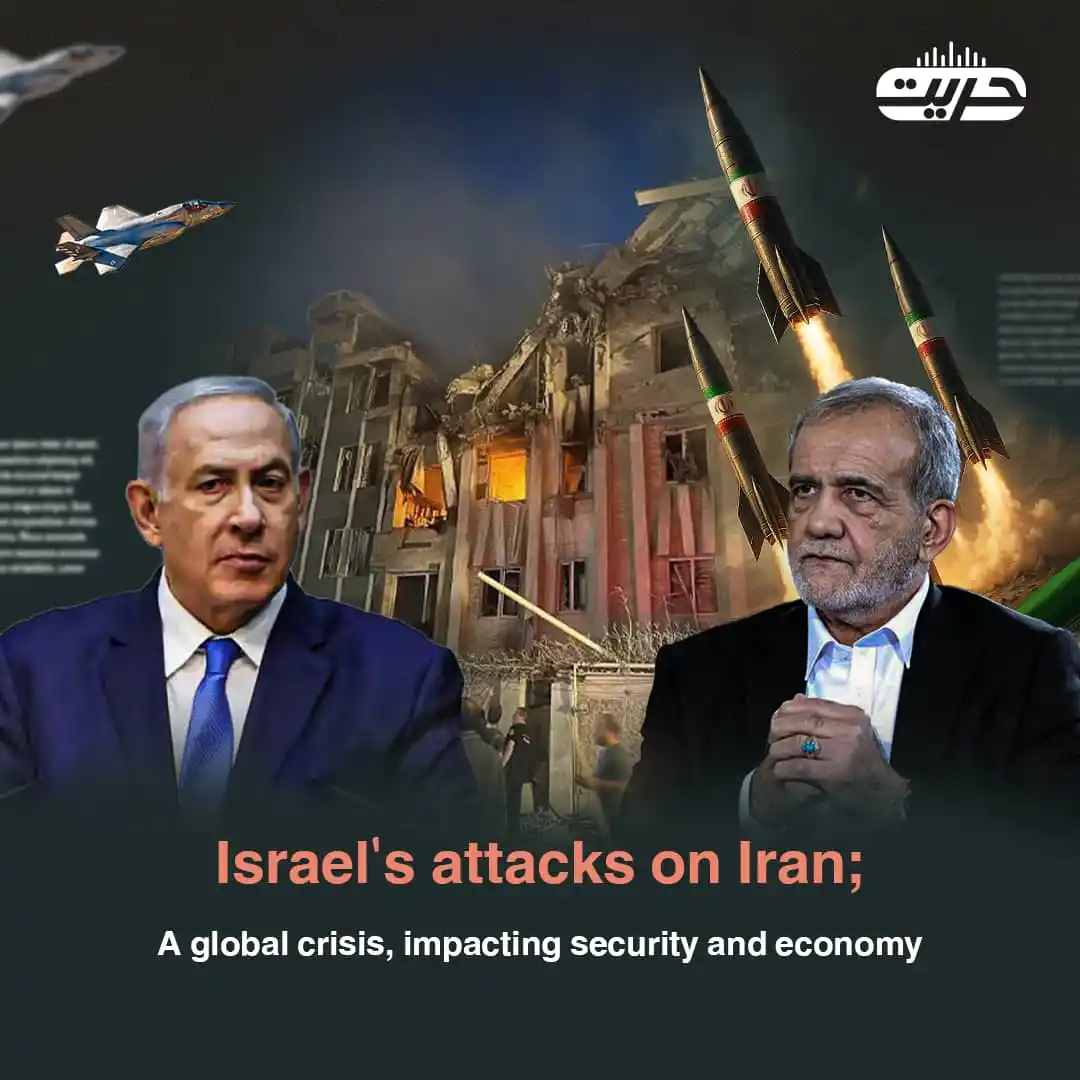
Hurriyat Radio English
June 14, 2025 at 06:10 AM
Israel's attacks on Iran; A global crisis, impacting security and economy
The extensive airstrike launched by the Zionist regime on Iran's nuclear and military installations early Friday morning has sent shockwaves across the globe, sparking deep concerns. This attack, with wide-ranging implications on Middle East security, global markets, and international stability that extend beyond the borders of Iran and Israel, has significantly altered the regional security landscape, global economic dynamics, and the established international order.
Reports indicate that Israel conducted strikes on over 100 targets, including the critical Natanz uranium enrichment facility in Iran, utilizing more than 200 fighter jets.
Israeli Prime Minister Benjamin Netanyahu declared that the assault specifically targeted "the core of Iran's nuclear program," statements that are viewed as a clear acknowledgment of breaching international legal norms.
In response to the attack, Ayatollah Ali Khamenei, Iran's Supreme Leader, President Massoud Pezzekian, and senior military officials in the country labeled the assault as not going "unanswered," pledging a "severe and regrettable" retaliation from Israel.
According to Iranian media sources, today's attacks resulted in the deaths of at least six nuclear scientists and 20 high-ranking Iranian military leaders, representing not just a loss of lives but also a significant blow to Iran's scientific and security infrastructure.
The closure of airspace in Iran, Iraq, and Jordan has led to the suspension of numerous flights in the region, prompting airlines such as Lufthansa, Wizz Air, and Air India to alter routes or cancel flights.
Following the attacks, global oil prices surged by over 10%, potentially triggering inflationary pressures and economic strains on a worldwide scale.
Moreover, disruptions to maritime traffic through vital passages like the Red Sea, the Persian Gulf, and the Suez Canal are expected to escalate global shipping times and expenses. Countries like Britain and Greece have advised their vessels to steer clear of the Red Sea.
Despite the assault's gravity, the United Nations has thus far issued only calls for restraint, eliciting criticism for what many perceive as tacit approval of the aggression.
Regional leaders from the Islamic Emirate in Afghanistan to Erdogan in Turkey have condemned the Israeli strikes, with Islamic Emirate representatives characterizing the attack on scientists and military officials as a violation of international law and stressing the necessity of upholding regional stability.
While the strike on the Natanz facility caused damage, Iranian authorities have assured that no radiation or chemical leaks occurred externally. Nevertheless, Iran's confidence in international bodies such as the Atomic Energy Organization has significantly waned.
Rafael Grossi, the head of the International Atomic Energy Agency, has urged for restraint, yet Iran has expressed disappointment over his silence, accusing him of collusion with Israel.
Any disturbance to security in the Persian Gulf, responsible for about a third of global oil exports, could propel worldwide energy prices to unprecedented heights.
Without substantial actions from the United Nations and major powers beyond mere rhetoric, the credibility of the international order faces severe scrutiny.
Israel's military incursion into Iran not only violates the territorial sovereignty of a sovereign nation but also serves as a stark warning to the global economy and regional peace. If this crisis is not swiftly contained, the world must brace itself for even graver consequences.
